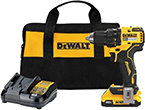What is a Drain-and-Trap Auger?
Written by Lee Wyatt (last updated September 23, 2016)
Have you ever wondered what a drain-and-trap auger is? Chances are you have heard the term at least once either by reading about it, or by talking to a plumber, or perhaps the clerk at the local home improvement store. It is a rather technical term, or name, for an item that is exceedingly common. Here is a little bit more information about these common, and wonderfully helpful tools.
- What is it? The term drain-and-trap auger is the correct and proper name for what most people call "the snake." Next to a plunger, this tool is perhaps the single most common tool available for removing clogs from rains. In fact, it is such a common tool that you can easily find it in the tool box of any professional plumber. It is also a tool that every homeowner should have as well.
- What are they used for? As was stated earlier, these tools are used to remove blockages found in a drain. While they can be used for most drains and pipes, this particular type of tool is designed for dealing with the drains and pipes associated with toilets, sinks, and tubs the most.
- How do they work? Drain-and-trap augers work by slowly turning as they extend. As they do this, they can often work their way through a blockage, and eventually push through. When they do push through, and they are then eventually retracted, this will leave an opening which will allow water and other fluids to pass through without much problem. Keep in mind that most models that you can get for home use only extend out about 25 feet. If there is a blockage further than that you will need to either contact a professional plumber, or rent a longer snake.
- Simple maintenance. As with most types of tools, and particularly plumbing tools, if you don't take proper care of the drain-and-trap auger, you can expect to see it deteriorate rather quickly. The simplest form of maintenance that you can perform on a snake is to thoroughly clean it when you are done. This can easily be done by taking the fully retracted snake outside, and then fully extending it. With the snake fully extended you can then rinse the snake off. Retract the snake, and then extend it out again to rinse off one more time. Repeat the process until the snake is completely clean.
Now that you know a little more about these very helpful tools, you can now start to look for the one that you will have in your own house. Keep in mind that you should only need to use one that is no more than 25 feet long, and can easily cost a minimum of $30. So, you may want to lok at this more like an investment, and should be treated as such.
Author Bio
Lee Wyatt
Contributor of numerous Tips.Net articles, Lee Wyatt is quickly becoming a regular "Jack of all trades." He is currently an independent contractor specializing in writing and editing. Contact him today for all of your writing and editing needs! Click here to contact. Learn more about Lee...
Home Hydroponic Gardening
If you are interested in doing some home gardening, but really don't have a whole lot of space you may want to consider ...
Discover More
Clearing the Table Quickly
While it might be fun to have friends and family over for dinner, it is never fun to clean up the table after the meal is ...
Discover More
Finding a Good Pet Groomer
Whether you have a dog, cat, or some other kind of pet chances are pretty good that you will want to have your furry ...
Discover More
More Home Improvement Tips
Winterizing Exterior Water Faucets
While you're putting your garden hoses away for winter, take the time to drain and turn off your outside water faucets, ...
Discover More
Insulating Pipes
A fairly common problem that many homeowners face during the cold winter months is their pipes freezing and bursting. One ...
Discover More
Replacing a Sink Strainer
Every sink has a vital, though often over looked piece of equipment called the sink strainer. This piece of equipment is ...
Discover More

Comments